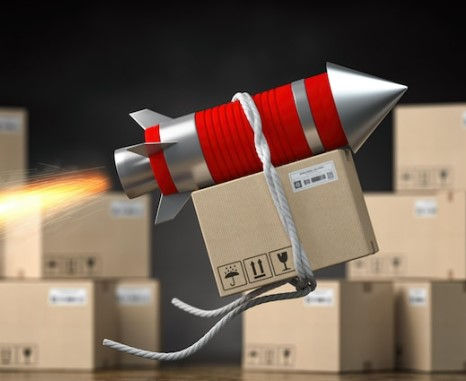Q-Commerce Dark Stores to Propel Real Estate Demand in India as Online Delivery Expands
- Jeffro Jerin
- Nov 2, 2024
- 2 min read
The rapid expansion of quick commerce, or q-commerce, is set to make a substantial impact on India’s real estate market as companies establish dark stores across the country. These mini-warehouses, integral to q-commerce's goal of 15–30-minute deliveries, are driving demand for unique real estate spaces specifically suited for high-speed delivery logistics.

According to a report by JLL and Miebach Consulting, dark store demand hit 24 million square feet (msf) in 2023, and projections suggest a compound annual growth rate (CAGR) of 12%, potentially reaching 37.6 msf by 2027. Deloitte estimates India’s q-commerce market could reach $40 billion by 2030 with a robust CAGR of 45%.
Unlike typical retail spaces, dark stores—ranging from 2,500 to 4,000 sq. ft.—are strategically situated in high-density areas based on consumer demand, traffic, and logistical efficiency. Real estate costs in urban areas challenge conventional retail rentals, leading q-commerce companies to opt for low-value spaces like unused industrial buildings, parking structures, and vacant retail spots in central urban zones.
Dark stores are appealing for landlords, generating monthly rentals between Rs 40 and Rs 200 per square foot. Cities like Delhi command higher values at Rs 150–200 per square foot. This emerging trend is evident in both Tier-I and Tier-II cities, with locations on high streets or main roads no longer the only prime areas. Properties that may not have seen high demand are now highly valued as q-commerce brands prioritize presence in densely populated zones.
The competitive growth of companies like Blinkit, Zomato, and Swiggy highlights the strategic importance of dark stores. Blinkit, for example, added 149 new dark stores in FY24, aiming to reach 1,000 by FY25. Swiggy is planning an additional 538 stores by FY28 with significant investment in location, size, and density to meet demand. Additionally, logistics providers like Delhivery are launching dark stores to fulfill direct-to-consumer (D2C) brand deliveries within hours.
“Consumer demand for quicker deliveries has made q-commerce and dark stores essential, boosting leasing activity in urban and metro areas,” stated Srinivas N, Managing Director, Savills India. This movement into secondary business districts (SBD) and Tier-II and Tier-III cities highlights the adaptability of q-commerce to India’s shifting market dynamics.
While demand is strong, dark store operators face challenges in compliance, zoning, and maintaining hygiene standards. Regulatory restrictions, especially in residential zones, pose a barrier. As dark stores gain traction, addressing these regulatory concerns will be essential for continued growth, benefiting both the q-commerce and real estate sectors.
As consumer demand drives q-commerce growth, dark stores represent a transformative trend in India’s real estate sector, offering new opportunities for developers, investors, and real estate firms to diversify into an asset class with high growth potential









Comments